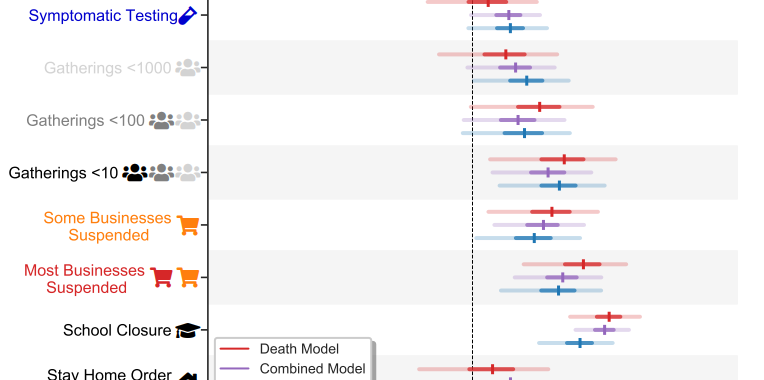A team lead by researchers from FHI have released a large empirical study of the effects and perceived social burden of nonpharmaceutical interventions (NPIs) against COVID-19 transmission. To our knowledge, it is the largest data-driven study of NPI effectiveness to date.
What did we do? We collected chronological data on 9 NPIs in 41 countries between January and April 2020, and extensively fact-checked it. This data is publicly available here. We inferred NPI effectiveness using a novel semi-mechanistic Bayesian hierarchical model, and modelled both confirmed COVID-19 cases and deaths. We then studied the burden imposed by different NPIs with an online survey of preferences using the MaxDiff method.
What did we find? Our results suggest a surprisingly large role for schools in COVID-19 transmission, which contributes to the ongoing debate about the relevance of asymptomatic carriers in disease spreading. We identify additional interventions with good effectiveness-burden tradeoffs, namely symptomatic testing, closing high-risk businesses, and limiting gathering size. Closing most nonessential businesses and issuing stay-at-home orders impose a high burden while having limited additional effect.
The work comes as many governments are deciding the time and order in which to lift nonpharmaceutical interventions, and it should offer vital evidence to help minimise the harm to the world population.
